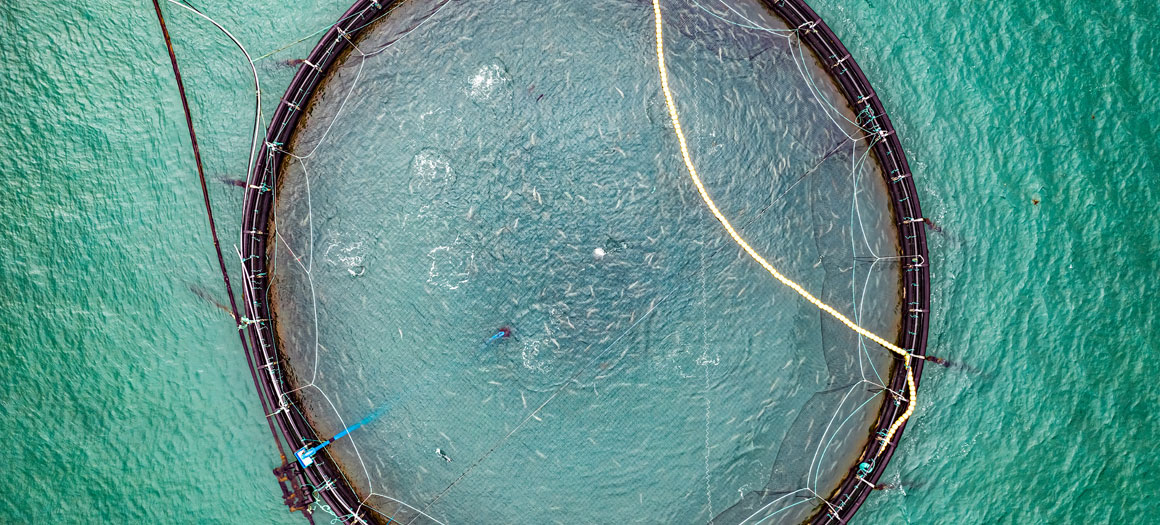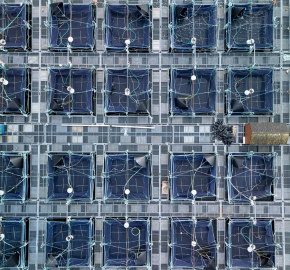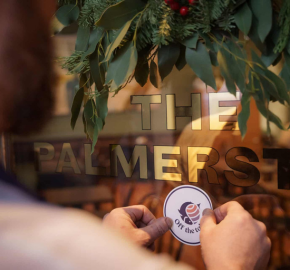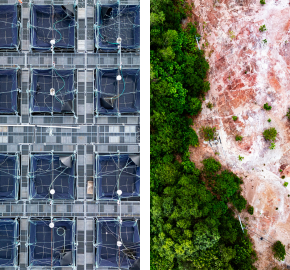Call for Scottish Government to substantiate its claim that salmon farming is “sustainable”

WildFish (formally Salmon & Trout Conservation) call for Scottish Government to substantiate its claim that salmon farming is “sustainable”. The failure to do so will mean that Scottish Government is guilty of blatant greenwash.
WildFish in Scotland is challenging Scottish Ministers to justify their frequent claims that open-net salmon farming, as practised in Scotland, is “sustainable”.
In recent weeks this has become the mantra of Rural Affairs Cabinet Secretary Mairi Gougeon in correspondence with WildFish, answers to parliamentary questions and in instructions to Professor Russel Griggs who is now carrying out a review of salmon farm regulation.
In 1987, the United Nations Brundtland Commission defined sustainability as “meeting the needs of the present without compromising the ability of future generations to meet their own needs.”
The newly published Green Claims Code by the Competition and Markets Authority is clear that environmental “claims must be substantiated”.
Andrew Graham-Stewart, Director of WildFish Scotland, said: “Increasingly Scottish Government, in particular Rural Affairs Cabinet Secretary Mairi Gougeon, is claiming that salmon farming in Scotland is ‘sustainable’. This is a bold assertion that we are now challenging. If Scottish Government is unable to substantiate the assertion, then, quite simply, it is guilty of blatant greenwash.
Nick Measham, CEO of WildFish, commented: “No amount of greenwashing can alter the evidence that open-net salmon farming kills wild fish and pollutes the marine environment. Sea lice and escapes from salmon farms are helping drive many populations of the west Highlands and Islands’ wild Atlantic salmon and sea trout to the brink of extinction. This alone is enough to demolish claims of sustainability without all the other impacts on marine life and the food chain being taken into consideration. This industry ranks amongst the worst environmental disasters in Western Europe.”
WildFish Scotland has formally written to the Cabinet Secretary, asking her to justify in detail her repeated use of ‘sustainable’ in terms of the operation of salmon farming in Scotland, by providing substantive direct answers to the questions below.”
- Where in the world has the goal of sustainable salmon farming actually been achieved?
- How can an industry that sources much of its feed, including wild fish and soy, from poorer countries in South America and West Africa, transports it for thousands of miles and subsequently airfreights the finished product worldwide, be deemed sustainable?
- Can a business model that incorporates some 20% mortality – from disease and parasites – before harvest be deemed sustainable?
- Can an industry, that is responsible for the severe degradation of Scottish coastal ecosystems in the “aquaculture zone” and the destruction of significant and valuable fauna and flora that depend on unpolluted waters, be deemed sustainable?
- How is it sustainable to permit effluent from open cage farms to be dumped untreated into the sea? (Industries that fail to internalise environmental externalities in such a manner are inherently unsustainable)
- How can an industry, which routinely uses highly toxic chemicals to kill sea lice before discharging these chemicals into the marine environment, thus killing other crustaceans in the vicinity, be deemed sustainable?
- How can an industry that takes tens of thousands of wrasse from the wild, to use them as cleaner fish, confines them in salmon cages and kills and discards them at the end of the salmon production cycle, be deemed sustainable?
- How is it sustainable to import wild wrasse from Southern England, releasing them (at least those that survive the journey north) into Scottish waters, when there are no biosecurity measures in place to ensure that the imported wrasse are not carrying diseases or other parasites, such as the Anilocra lice, into Scottish waters?
- Where in the world has the growth of intensive salmon farming not coincided with the collapse of wild salmon runs? (It is no coincidence that the only remaining abundant wild salmon runs are in Alaska, with no salmon farms, and Russia, with hardly any salmon farms)
- How can Scotland’s salmon farming industry be defined as sustainable when there has been no attempt by Scottish Government, despite numerous requests from ourselves and others, to assess its impact upon other stakeholders?
For all enquires, please email Andrew Graham-Stewart at directorscotland@wildfish.org



